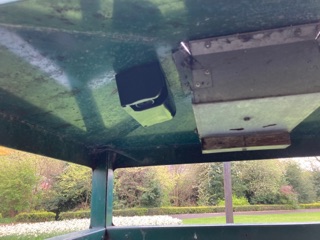Case Study: How The City of Edinburgh Council Reduced Overflowing Bins by 50% with SmartBin Sensors
- Joe Leech
- Mar 21, 2025
- 2 min read
SmartEnds SmartBin Sensors in Edinburgh
Overview
As one of the UK’s most visited cities, Edinburgh faces constant waste management challenges. With millions of tourists, a bustling local population, and busy streets filled with businesses and events, overflowing bins had become a recurring issue.
Bins in high-footfall areas would fill up rapidly, often leading to litter spilling onto the streets, increasing complaints from residents and visitors alike. Meanwhile, collection crews followed rigid schedules, sometimes servicing bins that were still half-empty while others remained overflowing. These inefficiencies led to unnecessary costs, environmental concerns, and a negative impact on the city’s image.
To tackle these challenges, The City of Edinburgh Council partnered with SmartEnds, installing 11,000 smartbin sensors to optimise waste collection and ensure cleaner streets.
Challenges Faced
Overflowing Bins in High-Traffic Areas: Popular spots like the Royal Mile, Princes Street, and festival venues often saw bins overflowing before scheduled collections.
Inefficient Collection Schedules: Without real-time data, waste crews followed fixed routes, leading to missed overfilled bins and unnecessary stops at half-empty ones.
High Operational Costs: Excess fuel consumption and labor hours were wasted on inefficient collection routes.
Environmental Concerns: Unnecessary collection trips increased CO₂ emissions, contradicting the city's sustainability commitments.
Our Smartbin Solution
Real-Time Fill Level Monitoring - Each bin reported its fill level every few minutes, allowing the waste management team to respond proactively.
Automated Alerts & Mobile App Integration - Crews received notifications when bins were nearly full, ensuring timely pickups and preventing overflow
Optimised Route Planning - AI-driven data allowed the council to prioritize collections, reducing unnecessary trips and improving efficiency.
Data-Driven Waste Management - The system provided insights into bin usage patterns, helping the council better allocate resources for peak demand periods.
Results Achieved
30% Reduction in Collection Costs - Optimised routes led to fewer unnecessary collections, saving fuel and labor hours.
50% Drop in Overflowing Bin Complaints - With real-time monitoring, waste teams could act before bins reached capacity.
Lower Carbon Emissions - Fewer collection trucks on the road meant a substantial decrease in CO₂ emissions.
Improved City Cleanliness & Public Satisfaction - Residents and tourists experienced cleaner streets with less litter.
Testimonials from City of Edinburgh Council Spokesperson
"With SmartEnds, we've turned waste management into a proactive, data-driven process. Our streets are cleaner, our costs are lower, and our citizens are happier."
Conclusion
The City of Edinburgh Council’s collaboration with SmartEnds has proven that smart waste technology can dramatically improve operational efficiency and city cleanliness.
As a result, the council is now exploring further integration of AI-powered waste solutions to enhance recycling efforts and reduce landfill waste.







Comments